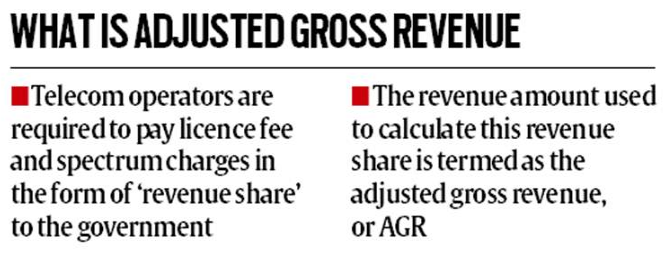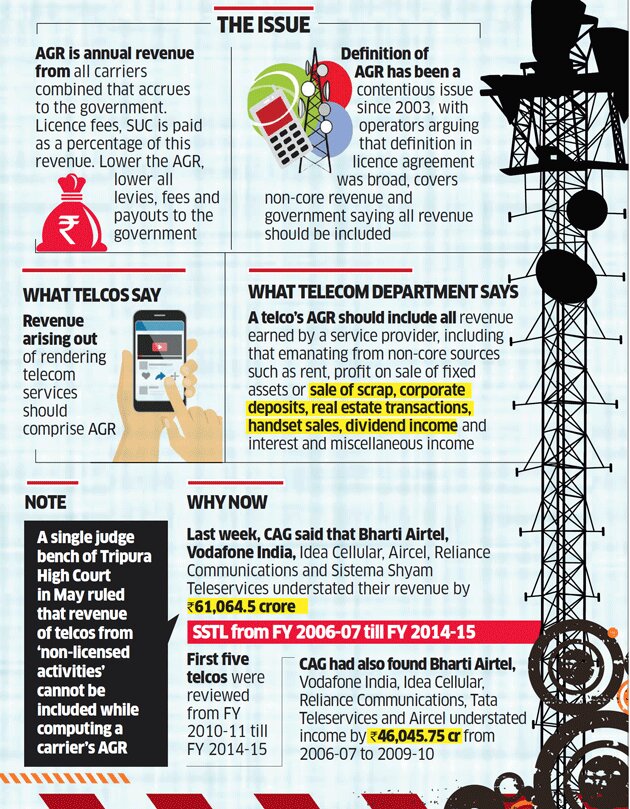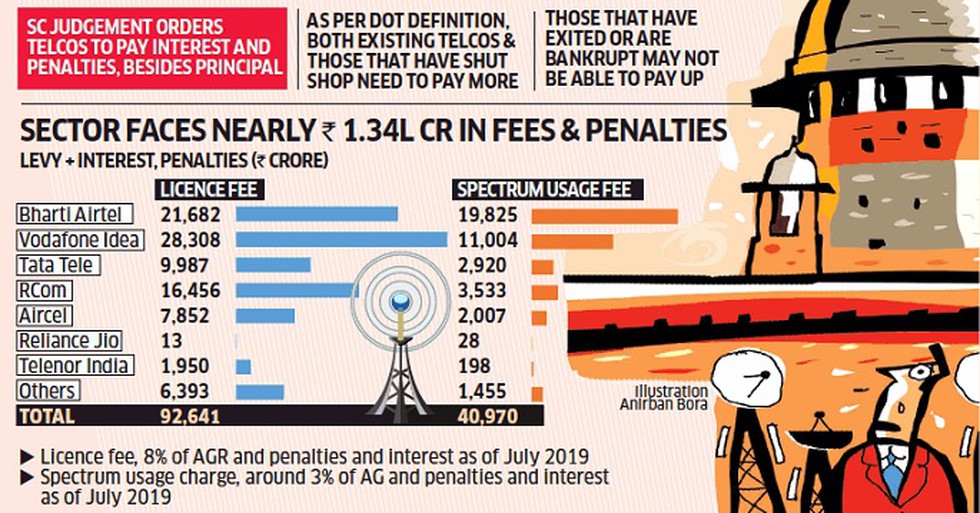Relevance: Mains: G.S paper III: Economy: Telecom sector
- The Licensing Finance Policy Wing of the Department of Telecommunications (DoT) directed all departments not to take any action against telecom operators if they failed to clear adjusted gross revenue (AGR)-related dues as per the Supreme Court’s recent order.
What it means for operators
- The order comes as a huge relief for operators — mainly Bharti Airtel and Vodafone Idea — that would have otherwise faced possible contempt action for not paying dues by the deadline.
- There is no change in the amount they have to pay — however, it buys them time as they hope for relief from the Supreme Court, which will next week hear their plea seeking permission to negotiate the timeline for payment of dues with the DoT.
- Bharti Airtel and Vodafone Idea together owe the telecom department Rs 88,624 crore.
- Prior to the DoT order restraining coercive action, the companies had told the government that they would wait for the outcome of the Supreme Court hearing. Reliance Jio paid up its dues of Rs 195 crore.
What it means for consumers
- A lot depends on what the Supreme Court rules. The promoters of Vodafone Idea have shown reluctance to invest more following the October verdict that asked that AGR-related dues be deposited by January 23.
- DoT order is an interim measure; a setback in the Supreme Court could potentially lead to Vodafone Idea’s exit, and the creation of a Airtel-Jio duopoly.
- This could lead to bigger bills, considering it was the cutthroat competition in the sector that made mobile telephony and Internet almost universally affordable.
What it means for banks, MFs
- The AGR issue has triggered panic in the banking industry, given that the telecom sector is highly leveraged.
- Vodafone Idea alone has a debt of Rs 2.2 lakh crore that it has used to expand infrastructure and fund spectrum payments over the years.
- The mutual fund industry has an exposure of around Rs 4,000 crore to Vodafone Idea.
Supreme Court stance so far
- The court agreed with DoT’s definition of AGR, and said the companies must pay all dues along with interest and penalty.
- Bharti Airtel and Vodafone Idea tried to persuade DoT to relax the deadline and, after failing, moved the court seeking a review of its judgment.
What is AGR?
- Adjusted Gross Revenue (AGR) is the usage and licensing fee that telecom operators are charged by the Department of Telecommunications (DoT).
- It is divided into spectrum usage charges and licensing fees, pegged between 3-5 percent and 8 percent respectively.
Why is AGR important?
- The definition of AGR has been under litigation for 14 years.
- While telecom companies argued that it should comprise revenue from telecom services, the DoT’s stand was that the AGR should include all revenue earned by an operator, including that from non-core telecom operations.
- The AGR directly impacts the outgo from the pockets of telcos to the DoT as it is used to calculate the levies payable by operators.
- Currently, telecom operators pay 8% of the AGR as licence fee, while spectrum usage charges (SUC) vary between 3-5% of AGR.




